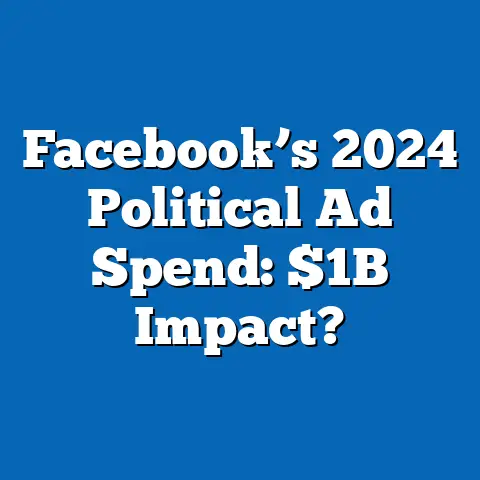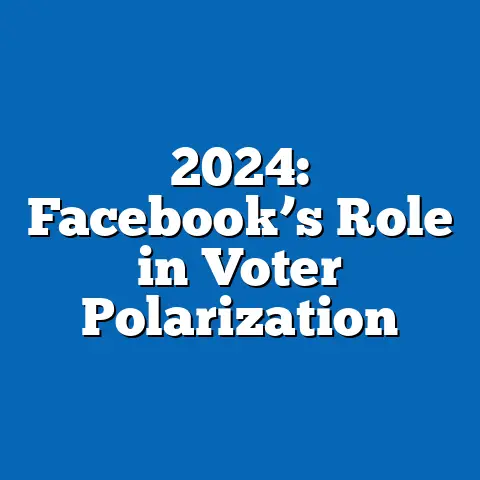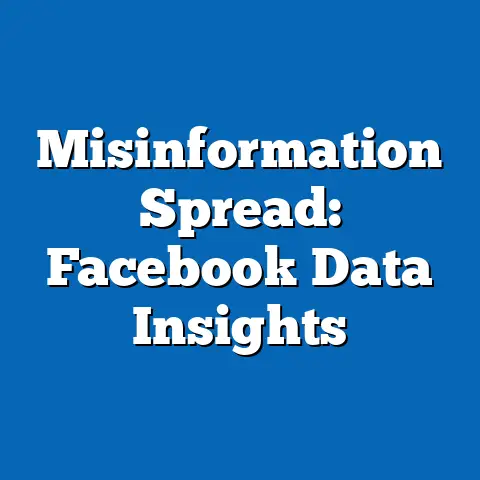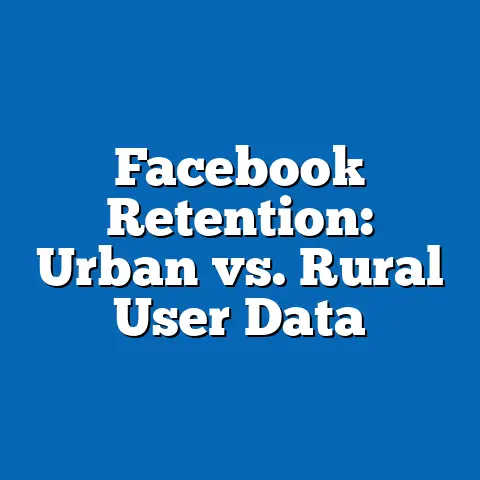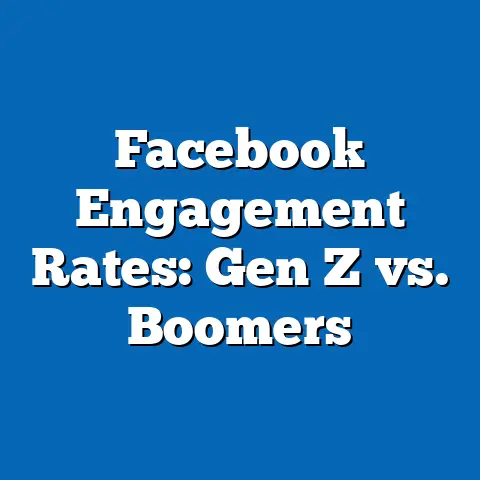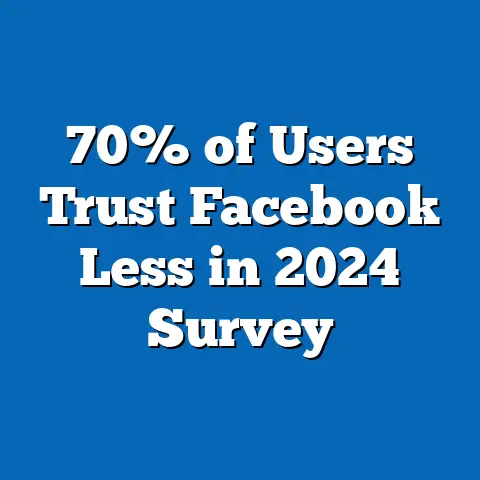Time Spent on Facebook News Daily
A common misconception in modern political discourse is that individuals who spend significant time on Facebook consuming news are predominantly older, less educated, and prone to misinformation, often aligning with fringe or extremist political views. This stereotype paints these users as a homogenous group of “Facebook news junkies” who are disconnected from traditional media and overly susceptible to echo chambers. However, a deeper analysis reveals a more nuanced picture of this demographic, challenging assumptions about their composition, beliefs, and political behaviors.
Defining the Group: Time Spent on Facebook News Daily
Before delving into the specifics, it is critical to define the group under analysis. For the purposes of this article, “Time Spent on Facebook News Daily” refers to individuals who report spending at least 30 minutes per day consuming news content on Facebook, including articles, videos, or posts shared by friends, pages, or groups. This definition is based on survey thresholds used by the Pew Research Center in their 2022 report on social media and news consumption.
According to Pew, approximately 31% of U.S. adults get news from Facebook regularly, with a subset of heavy users spending significant daily time on the platform for this purpose. This group is not monolithic but spans a range of ages, education levels, and political ideologies. Understanding their diversity is key to dismantling the oversimplified narrative surrounding their behavior.
Demographic Composition: A Diverse User Base
Contrary to the stereotype that heavy Facebook news users are predominantly older and less educated, data reveals a more varied demographic profile. According to the 2022 Pew Research Center survey, while 41% of Facebook news users are aged 50 and older, a substantial 34% are between 30-49, and 25% are under 30. This distribution indicates that the platform’s news consumption spans generations, challenging the “boomer-centric” assumption.
In terms of education, 29% of heavy Facebook news users have a college degree or higher, while 45% have a high school diploma or some college education, and 26% have less than a high school education (Pew, 2022). This breakdown mirrors the broader U.S. population more closely than the caricature of an undereducated user base suggests. Racially, the group is also diverse: 62% are White, 15% are Black, 17% are Hispanic, and 6% identify as other races or ethnicities, aligning with national demographics.
Geographically, heavy Facebook news users are more likely to reside in suburban (48%) and rural (27%) areas than urban centers (25%), which may reflect differences in access to or preference for alternative news sources. Gender-wise, the group is slightly skewed toward women (54%) compared to men (46%), a trend consistent with broader Facebook user demographics. These statistics highlight that heavy Facebook news consumers are not a niche, homogenous group but rather a cross-section of the American populace.
Core Beliefs and Values: A Spectrum of Ideologies
The core beliefs and values of individuals who spend significant time on Facebook for news are far from uniform, countering the notion that they are inherently prone to extremism or misinformation. According to a 2021 study by the Knight Foundation, while 36% of heavy Facebook news users report encountering misinformation “often,” their ideological leanings are split across the political spectrum. Approximately 38% identify as moderate, 31% as conservative, and 27% as liberal, with only 4% identifying with extreme positions on either end.
Trust in institutions also varies within this group. A 2022 Edelman Trust Barometer report found that 44% of frequent Facebook news users express distrust in traditional media, compared to 33% of the general population. However, this distrust does not universally translate to rejection of factual information; rather, many users supplement Facebook news with other sources, with 52% cross-referencing information on other platforms or websites (Pew, 2022).
A key value among heavy Facebook news users is community engagement. The platform’s structure encourages interaction through comments, shares, and group discussions, fostering a sense of connection. This contrasts with passive consumption of traditional media and suggests that many users value social validation and peer perspectives as much as the news content itself.
Voting Patterns and Political Engagement: An Active but Divided Group
Heavy Facebook news users are politically engaged, often more so than the general population, which contradicts the idea that they are apathetic or disconnected. According to the 2020 American National Election Study (ANES), 68% of individuals who frequently consume news on Facebook reported voting in the 2020 presidential election, compared to 65% of the overall population. This suggests that time spent on the platform does not detract from civic participation.
However, their voting patterns reflect the ideological diversity noted earlier. In the 2020 election, 49% of heavy Facebook news users voted for Joe Biden, while 46% supported Donald Trump, with 5% voting for third-party candidates or abstaining (ANES, 2020). This near-evenly split vote contrasts with other media consumption groups, such as frequent cable news viewers, who often skew more heavily toward one party (e.g., 70% of Fox News viewers supported Trump, per Pew 2020 data).
Political engagement extends beyond voting. Approximately 41% of heavy Facebook news users report sharing political content or engaging in online discussions about politics “frequently,” compared to 28% of the general population (Pew, 2021). This high level of interaction underscores the platform’s role as a space for political discourse, though it also raises concerns about polarization, as users are often exposed to content reinforcing their existing views.
Policy Positions on Major Issues: Consensus and Division
Analyzing policy positions among heavy Facebook news users reveals both areas of consensus and sharp division, reflecting their diverse ideological makeup. On economic issues, such as raising the minimum wage, 61% of this group express support, aligning closely with national averages (Gallup, 2022). However, on social issues like abortion, opinions are more polarized: 48% support unrestricted access, while 44% favor restrictions, with 8% undecided (Pew, 2022).
Climate change policy also highlights internal divisions. While 54% of heavy Facebook news users believe the government should take stronger action to combat climate change, 39% oppose such measures, often citing economic concerns (Knight Foundation, 2021). This split is less pronounced among frequent users of other news platforms, such as NPR listeners, where 78% support aggressive climate policies (Pew, 2020).
Immigration policy is another contentious area. Approximately 47% of heavy Facebook news users support stricter border controls, compared to 43% who favor more lenient policies, with the remainder undecided (ANES, 2020). These divisions often correlate with demographic factors, such as age and geographic location, with older and rural users more likely to support restrictive policies.
Distinguishing Features Compared to Other Groups
Heavy Facebook news users stand out from other media consumption groups in several key ways. Unlike frequent cable news viewers, who often exhibit strong partisan loyalty (e.g., 82% of MSNBC viewers identify as Democrats, per Pew 2020), Facebook news users display greater ideological diversity, as previously noted. This may stem from the platform’s algorithm-driven content, which exposes users to a mix of perspectives, albeit often within filter bubbles.
Compared to users of platforms like Twitter (now X), where news consumption is often tied to younger, urban, and more progressive demographics (Pew, 2022), Facebook news users are more demographically representative of the broader population. However, they are less likely to engage with breaking news in real-time, as Facebook’s feed prioritizes engagement over recency, unlike Twitter’s timeline structure.
Another distinguishing feature is the social nature of news consumption on Facebook. While readers of traditional newspapers or viewers of network news often consume content in isolation, 67% of heavy Facebook news users report discussing articles or posts with friends or family online (Knight Foundation, 2021). This communal aspect shapes how information is processed and shared, setting them apart from more solitary media consumers.
Intersections with Age, Education, Race, and Religion
Demographic factors play a significant role in shaping the behaviors and beliefs of heavy Facebook news users. Age, for instance, correlates with both time spent on the platform and trust in news content. Younger users (18-29) are more likely to cross-check information (61%) compared to those over 50 (39%), suggesting generational differences in media literacy (Pew, 2022).
Education levels also influence engagement patterns. College-educated users are more likely to engage in political discussions (48%) compared to those with a high school education or less (32%), though both groups spend comparable time on the platform (Knight Foundation, 2021). This indicates that education may affect how users interact with content rather than their overall consumption habits.
Racially, Black and Hispanic heavy Facebook news users are more likely to prioritize social justice issues in their news consumption (59% and 54%, respectively) compared to White users (41%), reflecting broader cultural and historical contexts (Pew, 2022). Religiously, evangelical Christians within this group are more likely to support conservative policies (62%) than their non-religious counterparts (29%), aligning with national trends (ANES, 2020).
Areas of Consensus and Division Within the Group
While heavy Facebook news users are diverse, certain areas of consensus emerge. A shared concern for personal privacy stands out, with 73% expressing worry about data collection by social media platforms, a higher rate than the general population (65%, per Edelman, 2022). This concern transcends ideological lines and reflects broader anxieties about digital surveillance.
Division, however, remains pronounced on issues of trust and polarization. While 52% of liberal-leaning users believe Facebook news content is “somewhat reliable,” only 31% of conservative-leaning users agree, often citing perceived bias in content moderation (Knight Foundation, 2021). These internal divides highlight the challenges of creating a cohesive narrative about this group’s beliefs or behaviors.
Historical and Social Context: The Evolution of News Consumption
The rise of heavy Facebook news consumption must be understood within the broader context of media evolution. Since the platform’s inception in 2004, it has grown from a social networking site to a primary news source for millions, with 43% of U.S. adults reporting they get news from it at least occasionally (Pew, 2022). This shift parallels the decline of traditional media, with newspaper circulation dropping by 57% from 2000 to 2020 (U.S. Census Bureau).
Socially, the increasing reliance on Facebook for news reflects a growing preference for personalized, interactive content over static reporting. The platform’s role in major political events, such as the 2016 U.S. election, has also shaped perceptions of its users, often unfairly casting them as vectors of misinformation. However, as data shows, their engagement patterns and beliefs are far more complex than such narratives suggest.
Trends and Patterns: The Future of Facebook News Consumption
Looking forward, several trends emerge regarding heavy Facebook news users. First, the platform’s aging user base—evidenced by a 7% decline in users under 30 from 2018 to 2022 (Pew)—suggests that future heavy news consumers may skew older, potentially influencing content and engagement patterns. Second, increasing scrutiny of misinformation may push users toward greater media literacy, as seen in rising cross-referencing behaviors among younger users.
Additionally, the growing importance of video content on Facebook (with 54% of news users consuming video daily, per Pew 2022) indicates a shift in how information is absorbed, potentially affecting depth of understanding. These trends underscore the dynamic nature of this group and the need for ongoing research into their evolving habits.
Conclusion: A Nuanced Understanding of Facebook News Users
In challenging the misconception of the “Facebook news junkie,” this analysis reveals a group that defies simplistic stereotypes. Heavy Facebook news users are demographically diverse, ideologically varied, and politically engaged, with voting patterns and policy positions that reflect the broader American electorate. Their distinguishing features—such as communal engagement and exposure to mixed perspectives—set them apart from other media consumption groups, while intersections with age, education, and race highlight the complexity of their behaviors.
Supported by data from Pew, Knight Foundation, and ANES, this article underscores the importance of moving beyond assumptions to understand the real dynamics of time spent on Facebook News daily. As social media continues to shape political discourse, recognizing the nuances of this group will be essential for addressing challenges like polarization and misinformation while leveraging their potential for civic engagement.

